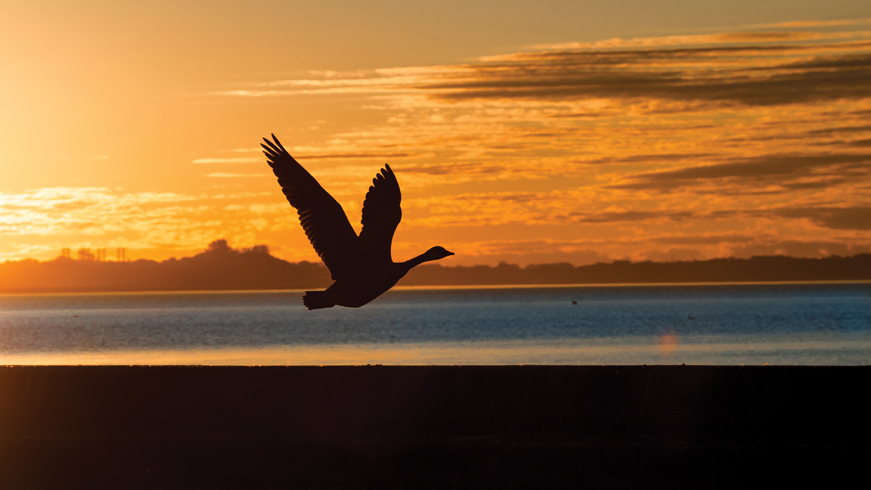Down Mexico and Way More

For those adventurous and deal-seeking snowbirds, here are 10 money tips to keep in mind.
With rising home prices in the U.S. Sunbelt and our ever-shrinking loonie, Canadian snowbirds are expanding their migratory reach, seeking sunny places to land in the Caribbean and central America. They’re not only finding warm weather, beautiful beaches and interesting cultures but attractive property deals and a more affordable cost of living. For those adventurous and deal-seeking snowbirds, here are 10 money tips to keep in mind.
Where we’re buying In 2014, Canadians invested an estimated $5.2 billion in vacation properties stateside, with the majority buying in Florida (41 per cent), Arizona (16 per cent), Hawaii and California (seven per cent each) and Nevada (six per cent). While that’s still a lot, it represents the lowest amount we’ve spent on U.S. properties since 2009 and another year in which buyers from China purchased more U.S. real estate than Canadians.
Budget for the lower loonie
Why have U.S. sales slowed? In a recent survey, 65 per cent said the weak dollar had a “moderate to significant” impact on their decision not to buy. To illustrate this point: on Jan. 1, 2013, the Canadian dollar was at par with the U.S. greenback. At press time, it was worth $0.75. So, a $200,000 vacation condo in Arizona would cost you over $67,000 more this year than it would have two years ago.
Lawyer up
Buying property in foreign destinations can be a legal minefield. In Mexico, for instance, foreigners cannot own beachside property unless they set up a bank trust. Although that may sound dodgy, Steve Corfeld, an ex-pat who sells real estate for Century21 in Cabo San Lucas, assures skeptics that “Canadians have been doing it this way for decades, and no one has ever been expropriated from their land or had it taken away by the Mexican government.” His main advice: get all legal documents translated.
Save when shopping
When visiting foreign destinations, save your shopping receipts (airport slips, travel documents, etc.) in order to claim a sales tax refund on departure. If you’re one of the two million Canadians who travel to Mexico each year, can receive an 8.9 per cent sales tax refund on the total amount spent while on vacation. Companies like MoneyBack Mexico (www.moneyback.mx) will process your refund and apply it right to your credit card.
Go where age is an advantage
Some countries entice snowbirds to stay permanently by offering special visas. Panama, for example, allows retirees to apply for a special visa that gives them discounts on hydro, electricity, medical services, dental and eye exams, public transportation and recreation activities. Similarly, Belize offers ex-pats (55 and over) a Qualified Retired Persons visa, which exempts them from income, state and import taxes and grants them a 25 per cent reduction on property taxes.
Bank like home
In many Central American and Caribbean countries, you’ll have the comfort of dealing with Canadian financial institutions. Kim Goddard, director of sales for the Royal Westmoreland (a high-end vacation resort in the Barbados) points out that the island’s banking sector is almost completely dominated by familiar names: RBC, CIBC and Scotiabank.
Buy a slice of the dream
Fractional ownership of vacation properties is an increasingly popular way Canadians are buying at least a slice of the luxurious snowbird experience. Goddard notes that a fractional purchase gives the buyer a fully transferable, sellable and willable share of the property, along with access to all the resort’s amenities. The hook is that they only pay for the time they actually spend at their property.
Be patient
In poorer countries, the infrastructure (roads, hydro, electrical grid, Internet service) isn’t close to the level we’re accustomed to at home. But as more snowbirds arrive and purchase property, says Sharry Sampson, policy analyst for the Belize Chamber of Commerce and Industry, government and private companies are investing more to improve infrastructure. She notes that a new highway connecting Belize City to the tourist areas has recently been completed and that the country now has three modern privately run hospitals.
Beware the hidden costs
Snowbirds are lured to Central America because of their very low property tax rates. However, some countries will nail you with expensive (and hidden) closing charges, land transfer taxes, legal fees, stamp duties, etc. Make sure you get your real estate agent to spell out all costs before you buy.
Research tools
Want to find out what you’ll pay for a kilo of rice in the Dominican Republic or a bottle of wine in Barbados? Budget your trip by visiting Numbeo.com or Nationmaster.com, two excellent online databases full of user-provided statistics – including crime rates and local cost of living including local prices on housing, food, clothing, transportation and utilities for any destination you choose.